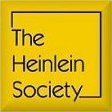|
|
|
- Allan Quatermain
- Hero of adventure novels by H. Rider Haggard, including King
Solomon's Mines (1886) and Allan Quatermain (1887).
- When the World Shook
- H. Rider Haggard's novel of modern English adventurers who find an ancient god (and beautiful daughter) asleep beneath a South Seas volcano. It was published in 1919 by Longmans, Green and Company. [Library of Congress call number PZ3.H123Wh]
- Oahu
- Third-largest and most populous island of Hawaii, the site of the state capital, Honolulu. It is between the islands of Kauai (to the northwest) and Molokai (to the southeast). Pearl Harbor and Waikiki Beach are on Oahu.
- Red Ox
- (In German, Zum Roten Ochsen) A pub frequented by students at Heidelberg University. The building dates to 1703, and the pub has been owned by the Spengel family since 1839.
- Humpty Dumpty sat on a wall.
- Humpty Dumpty had a great fall.
- All the king's horses and all the king's men
- Couldn't put Humpty together again.
- Humpty Dumpty had a great fall.


